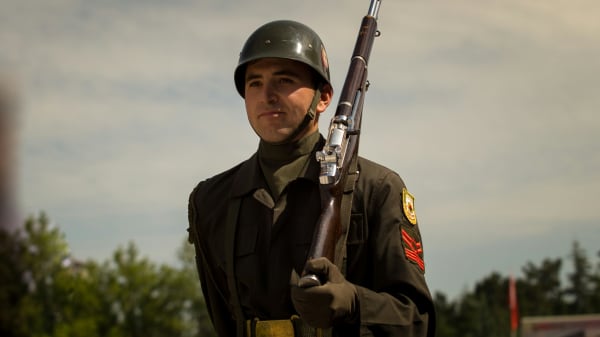The prospect of a career in Military Aviation has fascinated countless individuals for generations. The thrill of soaring through vast skylights, defending one's country, and engaging in missions that test one's skills presents a unique blend of excitement and responsibility. However, Military Aviation is not relegated solely to the role of a pilot. It encompasses an array of vocations, each contributing significantly to the safety and success of aerial operations.
While the career of a military pilot often garners the most attention due to their high-octane lifestyle and direct role in defense operations, this professional realm hosts several other roles which are equally important and fulfilling. From the eyes and ears of the aircraft—aviation technicians, to strategists—air traffic controllers, Military Aviation has a unique career trajectory for every individual with different passions and skills set.
Soaring High: Military Pilot
When we think of Military Aviation Careers, the first role that usually comes into mind is that of a pilot. A Military Pilot is responsible for operating aircraft to complete missions for defense and humanitarian aid.
A typical career path for a military pilot includes:
- Completion of an officer training program.
- Undergoing rigorous flight training.
- Amassing thousands of flight hours.
- Constant upgradation and adjustments to new technologies and procedures.
The life of a Military Pilot is indeed thrilling but it demands a high degree of physical fitness, mental alertness, adaptability, and resilience. The military pilot career requires a regular practice of skills, staying updated about the flight regulations, and adhering to a disciplined lifestyle.
Eyes and Ears: Aviation Technicians
Aviation Technicians are the lifeline of aircraft; they take care of the inspection, maintenance, and repair of the aircraft. Specializing in certain areas such as the engine, electrical systems, or the airframe, they play a key role in assuring that the aircraft are safe for intended missions.
A career path as an Aviation Technician generally tracks the following steps:
- Completion of basic training to become an enlisted member of the military.
- Further specialized training in aviation technology.
- Gaining hands-on experience with aircraft systems.
- Regularly updating knowledge on technological advancements and regulations.
The Strategic Controllers: Air Traffic Controllers
Air Traffic Controllers form an integral part of the Military Aviation Career spectrum. They hold the responsibility of guiding pilots during takeoff and landing, maintaining communication with aircraft in their designated airspace, and managing the movement of aircraft to prevent accidents.
To become an Air Traffic Controller, one usually follows this career trajectory:
- Completion of an officer training program as controllers are often commissioned officers.
- Undergoing specialized training in air traffic control.
- Gaining experience in handling multiple aircraft.
- Regularly updating knowledge about regulations and technological advancements.
Beyond The Conventional: More Careers in Military Aviation
Military Aviation isn't just limited to pilots, technicians, and controllers. There are numerous other operational and administrative roles pertinent to aviation that play an essential role in the overall military establishments.
Some of these include -
- Fighter Combat Leaders: Specializing in aerial combat strategies, Fighter Combat Leaders plans, strategizes and leads combat missions.
- Pararescue operatives: These are highly trained specialists tasked with the recovery and medical treatment of personnel in both humanitarian and combat environments.
- Flight Surgeons: Physicians specially trained in the medical aspects relevant to aviation, providing healthcare to aviators, aircrews or astronauts.
The diverse branches of Military Aviation Careers cater to various interests, skills, and talents. It's a field rife with opportunities for those seeking a rewarding occupation packed with adventure and responsibility. Regardless of which career path you choose, a life in military aviation promises an experiential journey with immense scope for professional growth and personal fulfillment.
Moreover, the attributes gained during military aviation service such as leadership, discipline, adaptability, and attention to detail are qualities that are highly transferrable and desired in many civilian roles, creating a plethora of career opportunities post active-service.
In Military Aviation, each role, no matter how varying they are, forms an integral part of a bigger picture. Each contributing to an overall goal of safeguarding the nation and assisting in global peacekeeping efforts. These careers, while they can be challenging, offer unique opportunities to serve your country, to push your limits, and create a fulfilling, respected career.
Whether your dream is to pilot an aircraft, maintain the mechanical heart of an aeroplane, coordinate the ballet of aircraft in the skies, or work in the numerous other unique capacities offered by military aviation, these careers promise a thrilling journey, bristling with opportunities for personal growth and lifelong learning. Remember, the sky is not the limit, it’s only the beginning.




